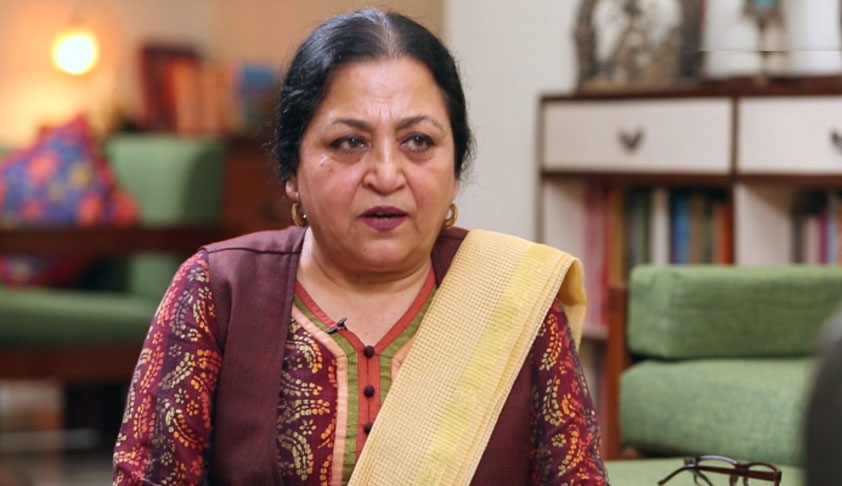NEW DELHI: The Supreme Court today stayed the non-bailable warrant (NBW) issued against activist Madhu Kishwar, against whom a criminal defamation case has been filed by a Kashmir-based scribe.
A bench headed by Chief Justice Dipak Misra said the plea filed by Kishwar against the Srinagar trial court order issuing an NBW last month for her non-appearance before it, would be heard in October.
Senior advocate Kapil Sibal, appearing for Kishwar, told the bench that an NBW was issued despite the apex court’s order permitting her to participate in the court proceedings in Srinagar through video-conferencing from a Delhi court.
“Despite the Supreme Court’s order, an NBW was issued against her,” Sibal told the bench, also comprising Justices A M Khanwilkar and D Y Chandrachud, said.
When the senior counsel told the court about the execution of the NBW, the bench said, “the NBW shall not be executed till then (when it hears the matter in October)”.
The matter was mentioned before the apex court earlier in the day and the bench agreed to hear it today itself.
The apex court had earlier said if the video-conferencing facility was not available in the Srinagar district court where the matter was pending, then the proceedings may take place at any appropriate place or court as per the direction of the Chief Justice of the Jammu and Kashmir High Court.
It, however, had clarified that it would be open to the trial court to make any appropriate modification in this arrangement to ensure that trial is not delayed.
Kishwar had claimed that on the basis of a “few tweets” posted by her on her Twitter handle regarding the state of the media in Kashmir, a complaint was filed by Syed Shujaat Bukhari, Editor-in-Chief of a daily published from Srinagar, alleging that these tweets were defamatory.
Kishwar had earlier approached the apex court challenging the May 24 order of the high court dismissing her plea seeking transfer of the criminal defamation complaint against her from a court in Srinagar to Jammu.
Her counsel had told the top court that the high court had failed to appreciate the “explosive and life-threatening law and order situation” in Srinagar and the risk it would pose to her life. (AGENCIES)


